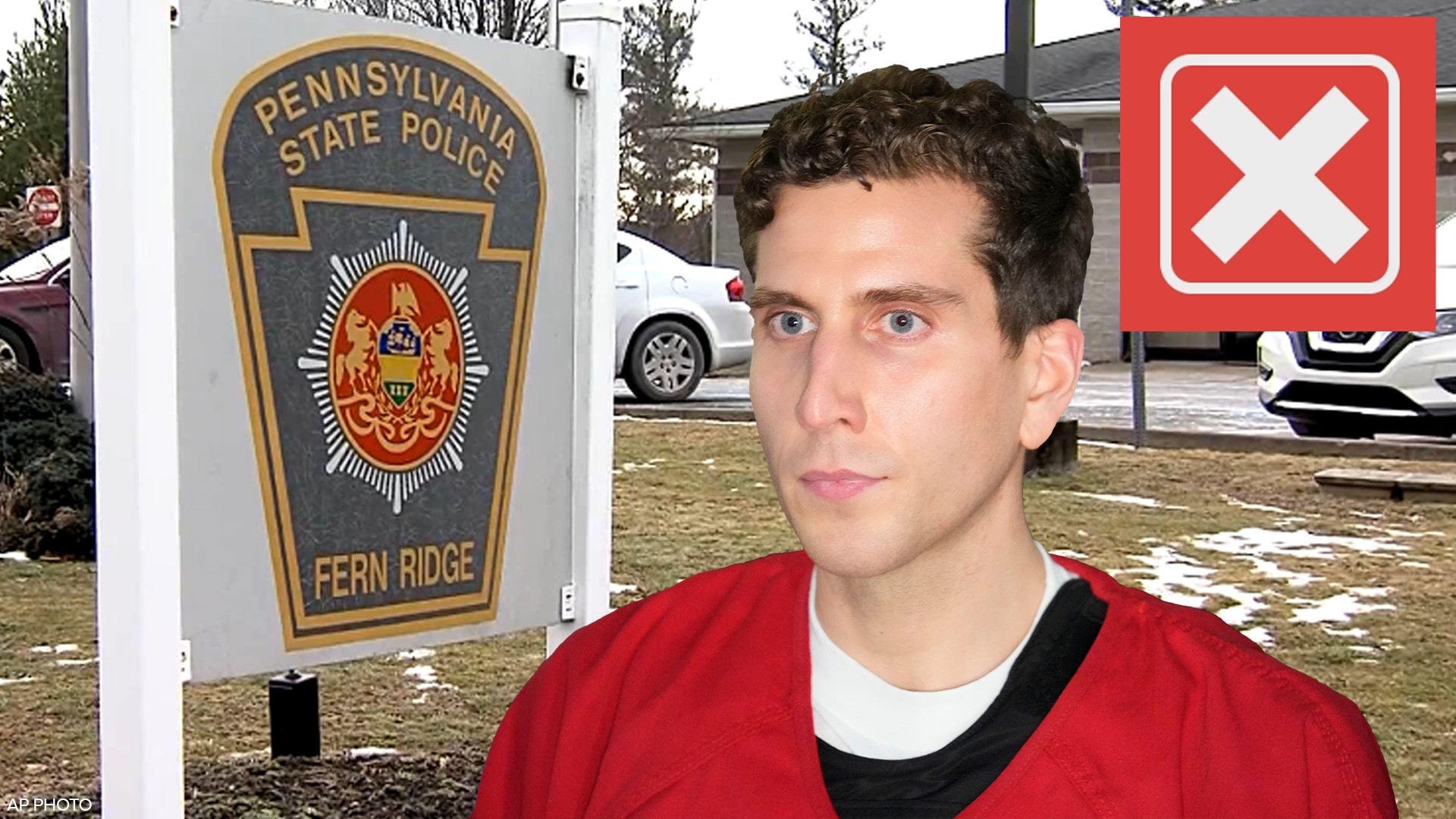ALBRIGHTSVILLE, Pa. — As the man accused of killing four University of Idaho students awaits his next court hearing, viewers reached out to the VERIFY team to ask about evidence gathered in the case.
Specifically, questions surround how police collected DNA evidence by searching the trash belonging to Bryan Kohberger’s family. Did police need a warrant to search the trash?
THE QUESTION
“It became known in the Kohberger case that the police went through the trash to get DNA evidence. Do the police need a warrant to do that?”
THE SOURCES
THE ANSWER
No, in most cases police do not need a warrant to search your trash, so long as it’s outside of your home.
The 4th Amendment protects people from unreasonable search and seizure by the government – in this case police. However, in California v. Greenwood, the Supreme Court determined that trash left for pick up outside of your home isn’t protected by the 4th amendment.
Some states do have stricter laws, so it can depend on where the search takes place, but that is not a factor in the Kohberger search.
“Pennsylvania and Idaho, the two states involved in this particular case, they do not have anything above and behind the Supreme Court’s consideration of no warrant,” Unger explained. “So, in other words, law enforcement in Idaho and Pennsylvania can generally search your trash so long as it’s been put outside.”
WHAT WE FOUND
The question about whether police need a warrant to search someone’s trash comes from details in the Kohberger case, laid out in the probable cause affidavit. The documents state that police in Pennsylvania searched through the trash can’s outside of Kohberger’s parents’ home, where they say they obtained DNA evidence used to link him to the crime scene in Moscow.
”The Supreme Court has ruled in a case called California v. Greenwood, back in 1988, that a warrant is not required at all to search through somebody’s trash, assuming that trash has been like put out for pick up,” Unger explained.
In general, the 4th Amendment protects people from unreasonable search and seizure by the government, but the Supreme Court determined that trash left for pick up outside of your home isn’t protected.
However, police must also consider what their state constitution says on the matter. In the Kohberger case, this was not a factor.
“Pennsylvania and Idaho, the two states involved in this particular case, they do not have anything above and behind the Supreme Court’s consideration of no warrant,” Unger explained. “So, in other words, law enforcement in Idaho and Pennsylvania can generally search your trash so long as it’s been put outside.”
The location is key here. If your trash is left for pick up outside your home, police don’t need a warrant. If your trash is inside your home or garage, then the police do need a warrant.
So, when it comes to the Kohberger case, Unger said police were ok to search the trash.
”Law enforcement in this particular case in Pennsylvania acted lawfully and constitutionally when it collected the DNA from the parent’s trash can,” he said.
So we can verify that police don’t need a warrant to search your trash, so long as it’s outside of your home and the state’s constitution does not state otherwise.
DOWNLOAD THE KREM SMARTPHONE APP
DOWNLOAD FOR IPHONE HERE | DOWNLOAD FOR ANDROID HERE
HOW TO ADD THE KREM+ APP TO YOUR STREAMING DEVICE
ROKU: add the channel from the ROKU store or by searching for KREM in the Channel Store.
Fire TV: search for "KREM" to find the free app to add to your account. Another option for Fire TV is to have the app delivered directly to your Fire TV through Amazon.
To report a typo or grammatical error, please email webspokane@krem.com.

